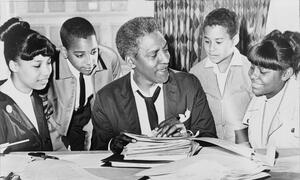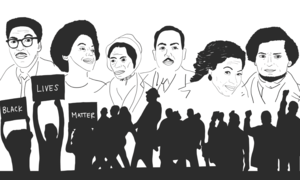Black LGBTQ History: Teachers Must Do a Better Job



This Black History Month, we’re encouraging educators to recognize and teach that Black history includes narratives that don’t focus solely on trauma. While it’s imperative to teach about the realities of racial oppression, it’s just as important to engage students with the many ways Black people have consistently and powerfully resisted white supremacy. For the next week, we’ll be sharing some of our favorite resources for celebrating Black liberation movements.
Racial oppression plays a significant part in American history, and it’s critical our students learn about it. But this February, we're encouraging educators to reflect on their own practice and ensure that the Black history they’re teaching—this month and year-round—isn’t limited to narratives of trauma. To support that learning, this week we’ll be sharing some of our favorite resources for celebrating the diversity of Black history, identity and experience.
Black history isn’t only in the past—it’s happening right now. This Black History Month, commit to acknowledging and elevating today’s young Black change makers and their accomplishments year-round. Our resources will help you uplift Black activists who are changing history and those fighting for justice within their communities, and they will encourage your students to see themselves as change makers too.

